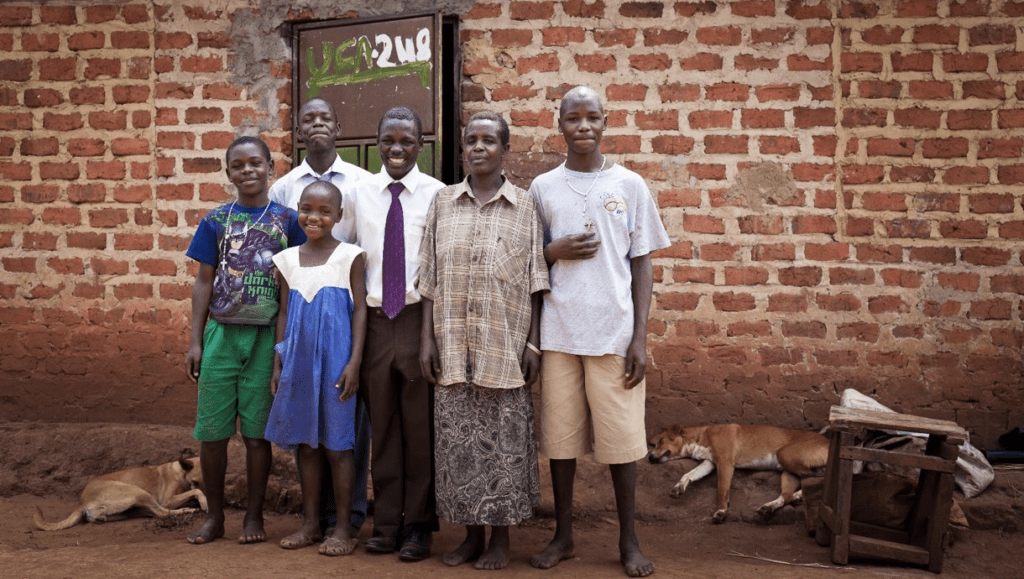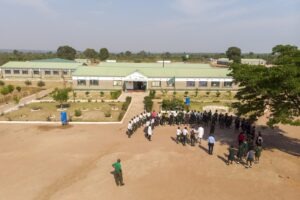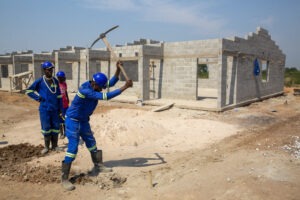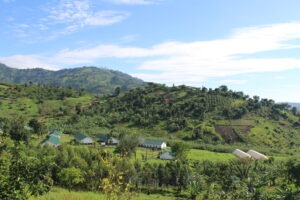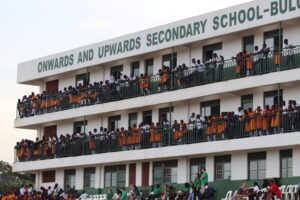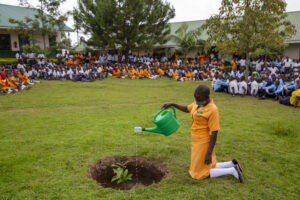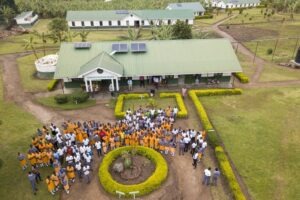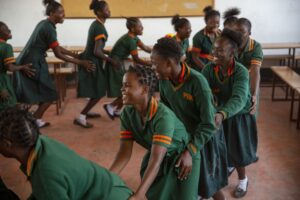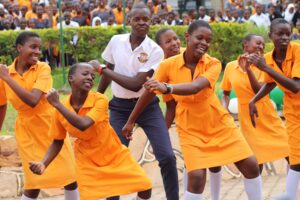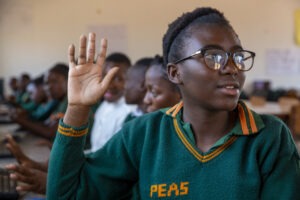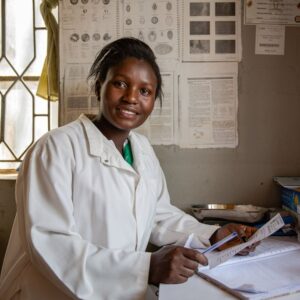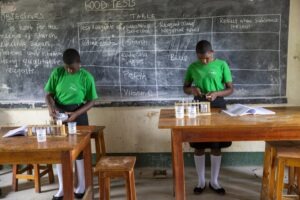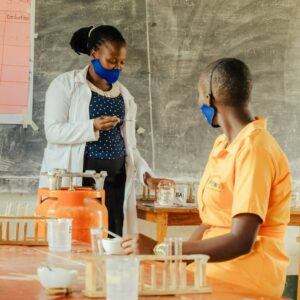Pride of place in my study is a picture of a young Ugandan man called John Mary – the first in his family to go to secondary school, and the first PEAS student to return to his school as a qualified PEAS teacher. The picture speaks to the opportunities that education can provide. I look at John Mary and I like to think that his children will go to secondary school too, and maybe to University. The picture was a parting gift from PEAS, where I have recently stepped down as Chair of the Board of Trustees after five years. It has been an enormous privilege and a pleasure.
PEAS runs great secondary schools in Africa – 36 at the time of writing – and helps others run great schools too. Our external evaluations show that we are serving a poorer demographic than Government schools – including more girls, and a higher share of children with disabilities – and achieving greater learning gains at a lower cost of delivery. We currently have around 19,000 children in our schools and are reaching around 150,000 more children through our broader systems strengthening support, partnering mainly with Governments. And we’re growing.
Our strategy 2022-2026 has three goals:
- Growing PEAS school networks: double the number of children in our schools, including closing the gender attainment gap.
- Strengthening education systems: improve secondary education at a national level in at least two of our three countries of operation.
- Strengthening the organisation: become sector leading in diversity, equity and inclusion; with our operations and fundraising driving growth and school improvement.
Growing PEAS school networks: our mantra at PEAS is ‘Access, Quality, Sustainability’ (AQS). If we are not serving poorer kids, achieving greater learning gains, and running a cost-effective and sustainable financial model, we are not doing our job. What’s more, we lose our legitimacy in helping others to run their schools better. PEAS’ success is built in the classroom; fail there, and we fail everywhere.
Strengthening education systems: I believe this is where our greatest impact will come from longer-term. Sharing what we learn running great schools to strengthen the larger education systems in which we sit. It will also be the hardest part to get right.
Strengthening the organisation: we have asked ourselves what kind of organisation PEAS is, and what kind of organisation it wants to be in the future. We are centring our governance in Africa, and have moved from an all-European, majority male Board with a UK Board Chair five years ago, to a majority African, majority female Board, now headed by a Ugandan Board Chair. We want to be less aid-dependent, moving to full sustainability of the school networks through PPP subsidies and through affordable fees.
What have I learnt as Board Chair? First, I learnt late to value the culture of PEAS as our most important asset. I asked one of our staff in Uganda recently what made PEAS special. The reply was ‘a culture of improvement’: be ambitious, seek to improve, fail forwards, fix stuff. I see this culture not only in our school networks, but also in our systems-strengthening partnerships. Most notably in Uganda, where we are partnering with the Directorate of Education Standards to help move inspections from a compliance focus to a school improvement focus. The initial results are good; not just the numbers, but the sense of progress and possibility you hear when talking to government school leaders. It’s hard, but there’s no great wizardry in education management: set clear targets, resource their delivery, and then push, support, cajole, inspire, push, until you get there. And hold up your hand if you don’t.
Second, I learnt that my job was not to guide the CEO but to support her. Both of the CEOs I’ve worked with are smarter and more capable than me (thank you Laura and Jenny). I used to think I should have the answer to every concern they raised in our bi-weekly calls; swap every problem for a solution. I’ve learnt to listen better and think about: (i) creating a supportive space for conversations the CEO is not having with her colleagues nor external peers, and (ii) create a space to think about the future of the organisation with her – beyond the bulging in-tray – think bold, and think big.
Third, trusteeship is a serious task but an enormous privilege. Our Board has been fortunate to work for an outstanding leadership team and outstanding organisation. We’ve been through difficult times but we haven’t become insolvent, we haven’t had to sack the CEO and we haven’t faced an existential crisis. I’ve seen other Board Chairs deal with all of these things, and they didn’t expect to. Trustees are the bottom line – in legal and financial terms and in keeping the organisation focussed on its charitable objects and on its impact. It’s not to be taken lightly, but it can hugely rewarding. It was for me.
Finally, my favourite memory. My first visit to a PEAS school in rural Uganda – seeing a classroom full of secondary school girls doing science experiments. It sounds a simple thing but it was wondrous.
Peter Colenso
